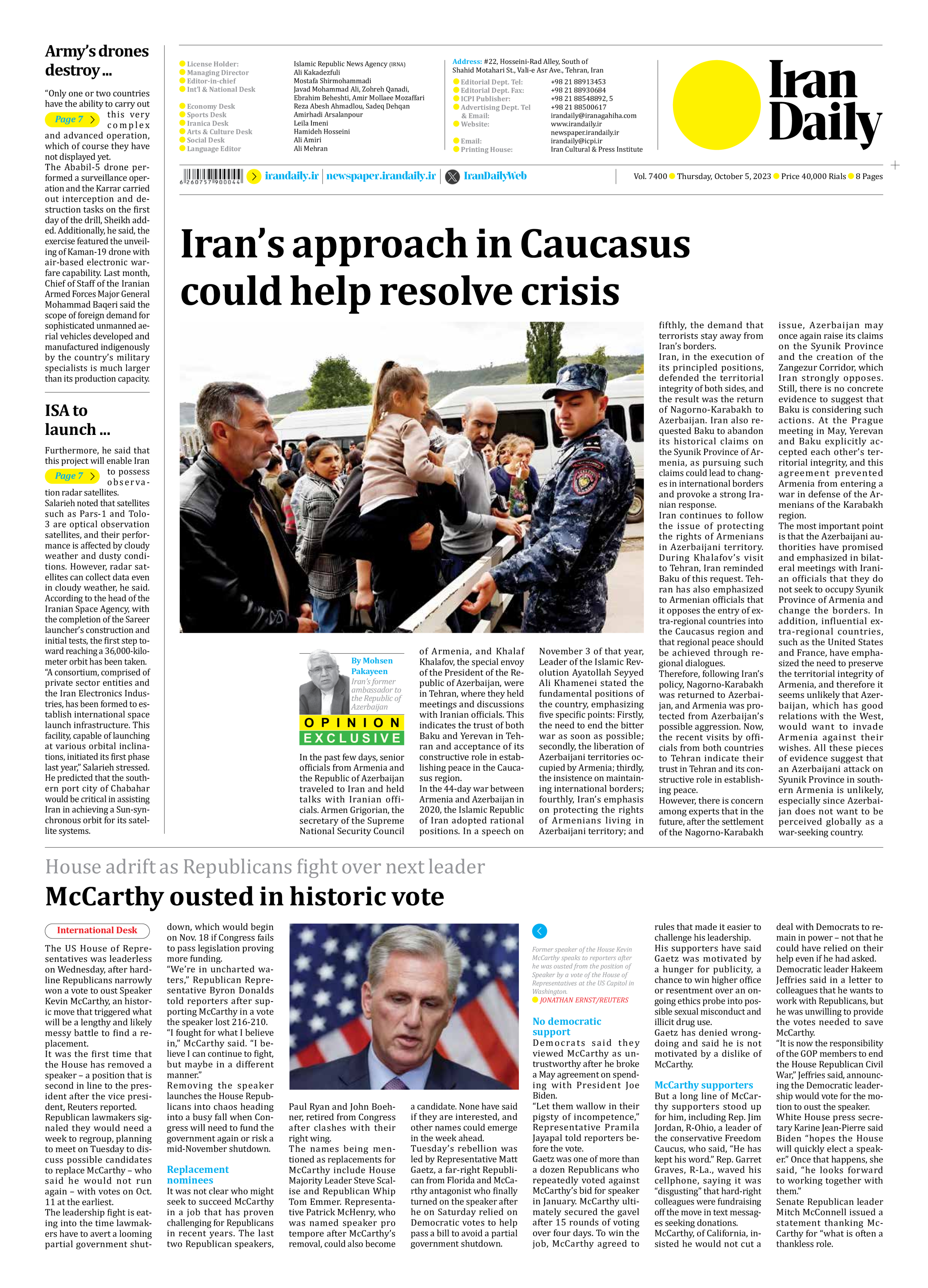
Iran’s approach in Caucasus could help resolve crisis
By Mohsen Pakayeen
Iran’s former ambassador to the Republic of Azerbaijan
In the past few days, senior officials from Armenia and the Republic of Azerbaijan traveled to Iran and held talks with Iranian officials. Armen Grigorian, the secretary of the Supreme National Security Council of Armenia, and Khalaf Khalafov, the special envoy of the President of the Republic of Azerbaijan, were in Tehran, where they held meetings and discussions with Iranian officials. This indicates the trust of both Baku and Yerevan in Tehran and acceptance of its constructive role in establishing peace in the Caucasus region.
In the 44-day war between Armenia and Azerbaijan in 2020, the Islamic Republic of Iran adopted rational positions. In a speech on November 3 of that year, Leader of the Islamic Revolution Ayatollah Seyyed Ali Khamenei stated the fundamental positions of the country, emphasizing five specific points: Firstly, the need to end the bitter war as soon as possible; secondly, the liberation of Azerbaijani territories occupied by Armenia; thirdly, the insistence on maintaining international borders; fourthly, Iran’s emphasis on protecting the rights of Armenians living in Azerbaijani territory; and fifthly, the demand that terrorists stay away from Iran’s borders.
Iran, in the execution of its principled positions, defended the territorial integrity of both sides, and the result was the return of Nagorno-Karabakh to Azerbaijan. Iran also requested Baku to abandon its historical claims on the Syunik Province of Armenia, as pursuing such claims could lead to changes in international borders and provoke a strong Iranian response.
Iran continues to follow the issue of protecting the rights of Armenians in Azerbaijani territory. During Khalafov’s visit to Tehran, Iran reminded Baku of this request. Tehran has also emphasized to Armenian officials that it opposes the entry of extra-regional countries into the Caucasus region and that regional peace should be achieved through regional dialogues.
Therefore, following Iran’s policy, Nagorno-Karabakh was returned to Azerbaijan, and Armenia was protected from Azerbaijan’s possible aggression. Now, the recent visits by officials from both countries to Tehran indicate their trust in Tehran and its constructive role in establishing peace.
However, there is concern among experts that in the future, after the settlement of the Nagorno-Karabakh issue, Azerbaijan may once again raise its claims on the Syunik Province and the creation of the Zangezur Corridor, which Iran strongly opposes. Still, there is no concrete evidence to suggest that Baku is considering such actions. At the Prague meeting in May, Yerevan and Baku explicitly accepted each other’s territorial integrity, and this agreement prevented Armenia from entering a war in defense of the Armenians of the Karabakh
region.
The most important point is that the Azerbaijani authorities have promised and emphasized in bilateral meetings with Iranian officials that they do not seek to occupy Syunik Province of Armenia and change the borders. In addition, influential extra-regional countries, such as the United States and France, have emphasized the need to preserve the territorial integrity of Armenia, and therefore it seems unlikely that Azerbaijan, which has good relations with the West, would want to invade Armenia against their wishes. All these pieces of evidence suggest that an Azerbaijani attack on Syunik Province in southern Armenia is unlikely, especially since Azerbaijan does not want to be perceived globally as a war-seeking country.







